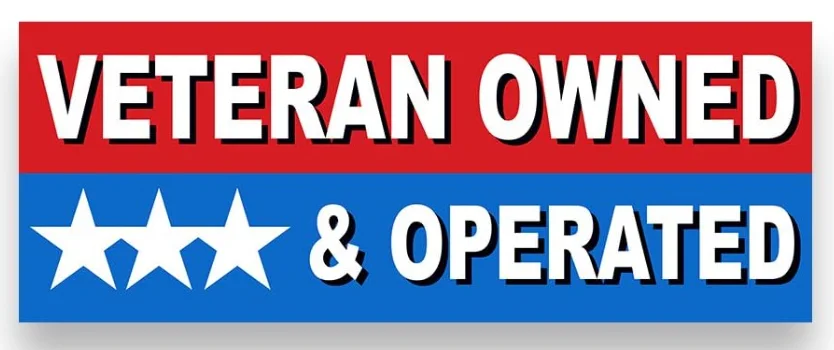
Who Owns the Data? A Guide to Data Ownership in Analytics
In the world of data consulting, the question about data ownership is critical. Many assume that Statisticians or data collectors have ownership. However, the owner of the data is the person who pays for it. This person also commissions its collection and defines the research objectives. At Topline Statistics LLC, I specialize in data organization, data analysis, and data reporting. I ensure that businesses extract the most value from their datasets. Learn more about my services here.
The True Owner of Data
Ownership of data lies with the entity that conceptualized the investigation, determined the data collection parameters, and financed the process. The data rightfully belongs to the party that made the decision to pursue it. This applies whether it’s a business seeking consumer insights, a scientist conducting an experiment, or a government agency tracking trends. However, there are legal, ethical, and business complexities that must also be considered when discussing data ownership.
The Role of Statisticians in Data Analysis
Statisticians are not typically responsible for gathering data. Instead, they focus on applying mathematical models and statistical techniques. These techniques help extract meaningful insights. For example, in a consumer research study, a third-party research firm might conduct product testing and collect feedback from participants. However, the entity that commissioned the study—the consumer goods company—owns the data because they initiated and funded the research. As a Statistician, I work with this data to optimize insights, but I do not claim ownership over it.

The Legal Complexities of Data Ownership
While it is reasonable to assume that the paying party owns the data, legal frameworks can sometimes complicate this assumption. In some cases:
- Contracts between businesses and research firms may specify shared ownership or limited access rights for raw data.
- Data privacy regulations include the General Data Protection Regulation (GDPR) and the California Consumer Privacy Act (CCPA). These regulations may impose restrictions on who can control data. They also govern who can process or transfer data.
- Proprietary methodologies used in data collection or transformation might be considered intellectual property. This means the research firm retains certain rights over the way the data was structured. They also retain rights over how it was processed.
Thus, while the commissioner of the study has primary ownership, research firms may keep rights to certain analytical models. They may also hold rights to proprietary transformations of the data. However, it is crucial to note that any personal data collected must be ethically gathered and protected under privacy laws.
The Misconception of Data Ownership Among Collectors
A frequent challenge in data consulting arises when data collectors attempt to assert ownership over the data they have gathered. Many research firms or testing agencies want to analyze the data themselves before handing over limited insights to their clients. However, the fundamental question remains. Does the data belong to the party collecting it? Or does it belong to the party paying for it? The answer is clear—the true owner is the one who defined the project and paid for the research. However, collectors may argue that their proprietary methodologies add value. They believe they should have some control over how the data is shared or utilized.

Data Collection and Third-Party Analysis: Where Conflict Arises
Consider a scenario where a consumer goods company tests a new shampoo with consumers. A third-party research lab sets up the test and gathers data. In many cases, the research firm will compile a final report summarizing results. However, the commissioning company may also want access to the raw data. They need this to conduct additional proprietary analyses. This leads to an important discussion:
- Should the company receive only the research firm’s report, or do they have the right to the raw dataset?
- Can a research firm restrict access to data they were hired to collect?
- Should businesses negotiate data access rights before commissioning research?
The best practice is for businesses to establish clear data ownership terms upfront. This ensures they receive both the processed insights and raw data. Doing so maximizes their analytical capabilities.
Ethical Considerations in Data Access and Analysis
Transparency in data sharing is essential for ethical statistical analysis, but confidentiality and privacy laws must also be considered. Some ethical considerations include:
- Consumer data protection – Raw data may contain personally identifiable information (PII). This information must be handled carefully. Compliance with laws like GDPR and CCPA is essential.
- Informed consent – If data is collected from human participants, there must be clear guidelines. These guidelines should specify how the data can be used.
- Proprietary methods – A research firm may have a unique approach to data collection. They might claim ownership over parts of the dataset.
At Topline Statistics LLC, I advocate open access to raw data for my clients. At the same time, I guarantee data privacy and compliance with regulatory requirements. Learn about my data consulting principles.

Derived Data: Who Owns the Transformations?
A significant gray area in data ownership discussions is derived data. These are datasets that have been processed, cleaned, or transformed. Such transformations create new insights. If a research firm modifies the data using proprietary methods, who owns the altered version? Does the commissioner have ownership of this modified version?

A simple example of this is a consumer survey. Individual responses make up the raw dataset. The final report includes statistical trends and predictive models—this would be derived data. Some research firms claim ownership over the processed version if proprietary techniques were used. However, the raw data should always belong to the paying entity, ensuring they can use it freely for additional analysis.
Industry Variability in Data Ownership
While corporate research typically follows a clear pay-for-data model, other industries may differ:
- Academic research – Data is often shared publicly or among research groups.
- Government data – Many datasets are open access to ensure transparency.
- Healthcare and clinical trials – Data ownership is tightly regulated to protect patient privacy.
This blog focuses on business-driven data ownership, where a paying company should retain control over its datasets.
Best Practices for Establishing Data Ownership Agreements
To avoid conflicts over data access and control, businesses should implement clear agreements at the outset of any research project. Best practices include:
- Define Ownership Terms in Contracts – Make sure the contract explicitly states who owns the data. The commissioning entity should retain full ownership.
- Specify Data Access Rights – Identify the parties with access to raw data. Describe any limitations on data usage.
- Negotiate Rights Over Derived Data – Ensure that any transformations or modifications to the data are explicitly addressed in agreements.
- Retain Flexibility for Future Analyses – Allow for extra data exploration beyond the initial research scope. This approach ensures maximum value extraction.
- Ensure Compliance with Data Regulations – Adhere to all legal and ethical guidelines regarding data privacy and protection.
- Partner with an Expert Statistician – Work with an experienced Statistician who can maximize data insights while respecting ownership boundaries.
Conclusion: Data Ownership Lies with the Investor, But Nuances Exist
At Topline Statistics LLC, I firmly believe that the rightful owner of data is the entity that funds its collection. This entity also defines the research goals. However, I also recognize that ownership is not always absolute. Contractual terms can introduce legal nuances. Data privacy laws also bring in ethical considerations. Proprietary methodologies introduce their own challenges to the discussion.
If you need a data consultant who respects data ownership, contact Topline Statistics LLC today. We specialize in advanced analytics. Let’s unlock the full potential of your data while ensuring you maintain complete control over your valuable insights.
For more insights on statistical consulting and data analysis, be sure to check out my other blog posts. Visit the Topline Statistics Blog.
Discover more from Topline Statistics
Subscribe to get the latest posts sent to your email.

Are you drowning in data?
Let us help! Our experts will navigate, organize, and analyze your data, bringing forth clarity and actionable recommendations.
